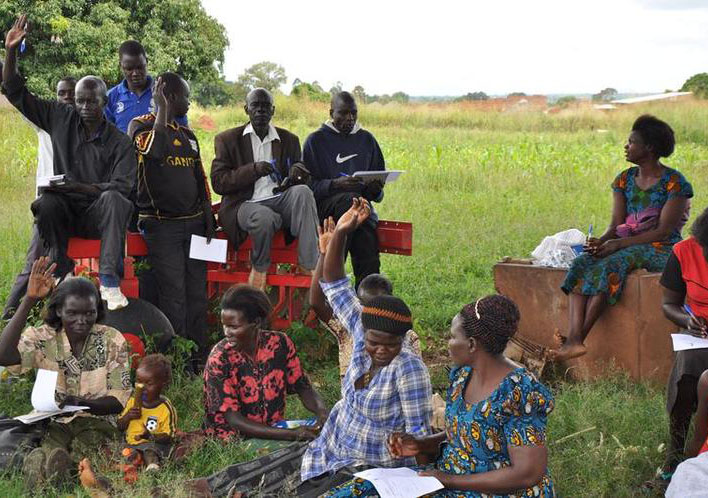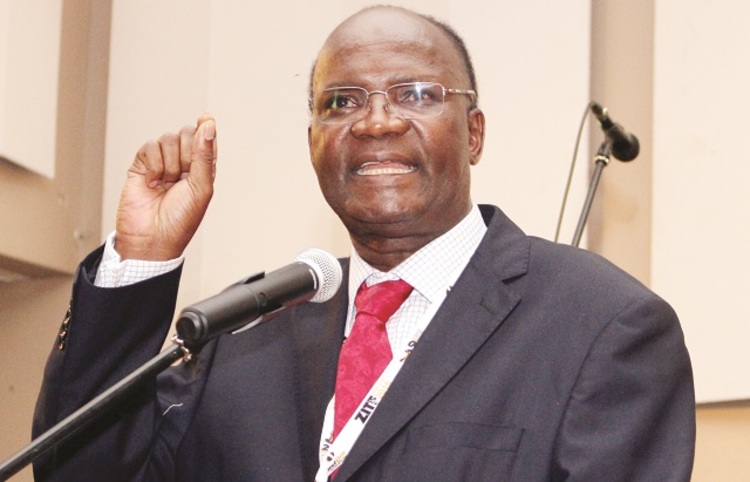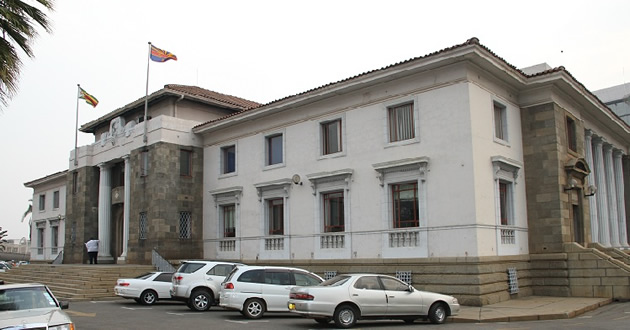Traditional leaders should be designated marriage officers


Village assemblies can be used by village heads and chiefs as platforms to conscientise families of the need to register marriages
Godwills Masimirembwa Correspondent
Have you ever wondered why the majority of “customary” marriages are not registered? The major historical reason was that writing was not part of African society prior to colonisation.
What was required for a valid marriage under “customary” law was the consent of the intending spouses to the marriage; the consent of the guardian of the woman; agreement on roora/lobola; and delivery of the bride to the bridegroom.
After colonisation such unregistered marriages were recognised until January 1, 1951.
Thereafter from January 2, 1951 such marriages were no longer recognised as marriages unless solemnised in terms of native marriage law (Chapter 79 of 1939).
However, despite the statutory provisions requiring the registration of the marriages, most Africans did not and still do not register their “customary” marriages.
While socialisation and practice may explain the failure to register these marriages, the writer submits that the major reason is the law itself.
The procedures for registering a customary law marriage as provided in the Customary Marriages Act (Chapter 5:07) are unnecessarily cumbersome and in fact discourage intending spouses to register their marriages.
The law relating to customary marriages is also discriminatory when compared with the provisions of the Marriage Act (Chapter 5:11) which permit the designation of ministers of religion and other persons as marriage officers.
Many ministers of religion are indeed designated marriage officers, whereas chiefs have never been so designated despite the provisions of Section 18 of the Customary Marriages Act, which permit the Minister of Justice to so designate them.
Section 2 of the Customary Marriages Act defines a “customary marriage officer” as a magistrate or an official or chief appointed by the Minister of Justice to be a customary marriage officer. Currently only magistrates are marriage officers. Chiefs are not marriage officers.
The non-designation of traditional leaders as marriage officers is the main reason why the majority of customary marriages are not registered.
Firstly, magistrates courts in Zimbabwe are located at town centres and growth points. This means that intending spouses have to travel long distances in order to get married.
Secondly, in terms of Section 4 (2) (b) of the Customary Marriages Act “a witness, who shall be the chief, headman or village-head of the guardian of the woman or such other person as the customary marriage officer may approve” has to be present. It boggles the mind why a chief, headman or village-head has to witness the marriage instead of being the marriage officer.
Thirdly, in terms of Section 4 (3) the husband is obliged to pay a fee to the person who witnesses the marriage.
Fourthly, in terms of section 27(b) of the Marriage Act (Chapter 5:11) a magistrate solemnises marriages during “ordinary hours of attendance observed at offices of the State. This means that “customary” marriages are only solemnised between 8am and 5pm during working days.
Thus, the majority of persons intending to marry under customary law have to travel long distances and in the process incur travel and subsistence expenses in order to secure the solemnisation of their marriages.
The time provided for the solemnisation of marriages is also limited as it excludes evenings, weekends and pubic holidays. Thus, the law as it currently stands is the major stumbling block to the solemnisation of customary law marriages.
On the other hand, if it is a marriage under the Marriage Act (Chapter 5:11) (the general law marriage), ministers of religion solemnise the majority of marriages as they are easily accessible to their congregants or followers.
The enabling provision in the Marriage Act is section 4 which reads as follows:
Designation of ministers of religion and other persons as marriage officers
(1) The Minister may, at the request of the authority governing any religious denomination or organisation, designate any person holding a responsible position in any such religious denomination or organisation to be a marriage officer for the purpose of solemnising marriages according to Christian, Jewish, Islamic, or Hindoo rites or the rites of any religion, such person shall, for purposes of this Act, be known as a minister of religion.
(2) The Registrar shall keep a register in the prescribed manner of all persons designated by the Minister in terms of subsection (1) as marriage officers.
Further, general law marriages can be solemnised by ministers of religion at any place approved by such marriage officer.
This means that ministers of religion can visit prospective couples at their houses or any other place or church or building used for religious service in order to solemnise a marriage. A general law marriage may also be solemnised at any time.
The enabling provision with regards to the time and for the solemnisation of general law marriages is Section 25 of the Marriage Act which reads as follows;
Time and place for, and presence of parties and witness at, solemnisation of marriage.
S. 25 (1) A marriage may be solemnised at any time.
(2) A marriage officer shall solemnise any marriage in a church or other building used for religious service, or in a public office or private dwelling — home or other place approved by such marriage officer, in the presence of the parties themselves and at least two witnesses of or above the ages of eighteen years.
Thus, the law makes it easy for those who want to get married following Christian, Jewish, Islamic, or Hindoo rites or the rites of any religion to register such marriages, but clearly discriminates against indigenous Zimbabweans by making it profoundly difficult and unattractive to register “customary” marriages.
Although the Customary Marriages Act empowers the Minister of Justice to appoint Chiefs as marriages officers, the fact of the matter is that they have never been appointed as such since colonial times.
In fact our marriage laws have simply been a copy and paste job of Rhodesian laws which discriminated against Africans. The only change made by our drafters was to rename the title of the Act of Parliament dealing with indigenous marriages “Customary Marriages Act”, from “Native Marriages Act”. But the obnoxious content remains the same.
The constitution of Zimbabwe recognises traditional leaders and traditional leadership. Section 280 (1) and (2) of the constitution reads as the follows:
(1) The institution, status and role of traditional leaders under customary law are recognised.
(2) A traditional leader is responsible for performing the cultural customary and traditional functions of a Chief, headperson or village head, as the case maybe, for his or her community.
Some of the key functions of traditional leaders as set out under section 281 of the constitution include “(a) to promote and uphold cultural values;”
(b) To take measures to preserve the culture, tradition, history and heritage of their communities, including sacred shrines”.
Clearly, therefore, traditional leaders are enjoined by the constitution to be community and religious leaders. In case there is confusion about the meaning of the word religion, the Collins dictionary defines it as “ a system of belief in, worship of supernatural power or god”.
The constitution accords every Zimbabwean freedom of religion. Indigenous Zimbabweans regard their traditional leaders as both community and religious leaders, hence the constitutional provisions that they must promote sound family values and preserve the culture, traditional, history and heritage of their communities, including sacred shrines.
The Traditional Leaders Act, (Chapter 29:17) elaborates the function of each category of traditional leadership, from the village head, to the headperson and to the Chief.
Village heads are the lowest in rank, but are constitutionally mandated and enjoined to perform the functions of traditional leaders, albeit under the headperson, and ultimately under the Chief. Village heads are closest to the people in a village.
They chair village assemblies once every three months were village development and governance issues are discussed. Villages are comprised of close knit families. It is inconceivable that a village head would not be aware of a marriage which has taken place in the village.
Village assemblies would also be used by village heads as platforms to conscientise families of the need to register marriages.
It is the writer’s submission that if the Minister, as indeed is the case, may designate a minister of Christian religion, Jewish religion, Islamic religion, Hindoo religion, or any other religion, to be a marriage officer, all the more reason why traditional leaders from village head, to headperson and the Chief should be designated marriage officers for “customary” marriages.
Godwills Masimirembwa is a lecturer at the Zimbabwe Institute of Legal Studies.
The current position were only magistrates are “customary” marriage officers, coupled with the requirement that a Chief, headperson, or village head of the woman be a witness, is unnecessarily cumbersome, but also expensive.
It is the law which is responsible for the scanty registration of customary marriages. It is also the law which then disadvantages spouses in unregistered customary marriages by refusing to recognise them as married couples.
It is to be noted that Zimbabwe is the only country in the SADC region which does not recognise unregistered “customary” marriages.
There is no logical reason for Zimbabwe to perpetuate this colonial legacy. While registration of marriages is important, it is unconstitutional to refuse to recognise such marriages as this is tantamount to discrimination on the grounds of custom and culture.
Other SADC countries realised this and passed laws recognising unregistered customary marriages as marriages, while at the same time exhorting couples to register their marriages. An example is the South African Recognition Of Customary Marriages Act 120 0f 1998.
The best exhortation is to make the process of registration easy by designating traditional leaders as marriage officers. Traditional leaders should also be allowed to solemnise marriages at anytime and at any place approved by them, as is the case with ministers of religion when they solemnise marriages under the Marriage Act.
Traditional leaders are fully acquainted with the requirements for a valid “customary” marriage. All that is required is to ensure that they are updated on constitutional requirements such as the requirement that only persons who have attained eighteen years of age are permitted to found a family.
Issues pertaining to the payment of roora/ lobola are customary issues which should be respected and be allowed to continue.
If a party to a prospective marriage does not want to pay roora/lobola they should simply marry under the general law, instead of seeking to destroy the customs and culture of indigenous Zimbabweans under the misinterpretation of the Legal Age of Majority Act as was done by Dumbutshena C J (as he then was), in the case of Katekwe vs Muchabaiwa 1984 (1) Zimbabwe Law Reports at page 112.
The Supreme Court subsequently overruled the reasoning in Katekwe vs Muchabaiwa in the case of Magaya vs Magaya 1999 (1) Zimbabwe Law Reports at page 100.
This is an issue which the writer will explore in his next article. Suffice it to say that the Marriage Act protects the rites or disciplines of various religions.
Section 27 (a) permits a minister of religion to refuse to solemnise a marriage which does not conform to the rites or discipline of his religious denomination or organisation.
Why then should the rites and disciplines of indigenous Zimbabweans be sacrificed under the guise of emancipating women, when the intention is to destroy Zimbabwean culture?
In conclusion, the writer submits that the Executive and the Legislature ought to repeal Section 3 (1) of the Customary Marriages Act (Chapter 5:07) and substitute it with a provision that recognises unregistered customary marriages as marriages.
Secondly, the definition of “customary marriage officer” in Section 2 of the said Act ought to be repealed and substituted with the following: “customary marriage officer” means a magistrate, chief, headperson or village head”.
The spouses and children in unregistered customary marriages have suffered for too long under a discriminatory law inherited from Rhodesia.
This, surely, should not be allowed to continue in an independent Zimbabwe.
Godwills Masimirembwa is a lecturer at the Zimbabwe Institute of Legal Studies







Comments